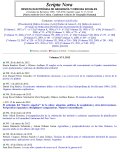Social and spatial segregation and the negligence to the built constructions: the legacy of the projects and actions by the municipal government in Maringá-PR (Brazil)
Keywords:
urban requalification, social and spatial segregation, modern planAbstract
The legacy provided by the performance of the municipal government in Maringa, Parana, Brazil, has been composed by a systematic disregard for the built constructions and an intense process of segregation aimed at the real estate appreciation. The initial plan defined areas for buildings and spaces of public and collective nature. Although it were partially implemented, such areas have resulted in a set of buildings builtunder a constant struggle between the public and private interests. We was investigated the process of transition from the ideal and planed city to the built and real city, especially in the construction and demolition of the first central buildings, where the main activities had once been concentrated and even so, these buildings were not kept as a symbol of this important historical period. Further, from the modern plan, we analyzed the availability of a zoning determined by the economic pattern that has developed and therefore established an urban occupation characterized by intense processes of segregation, implemented by the joint actions of the real estate agents and the public authorities.Issue
Section
Articles
License
Los autores que publican en esta revista están de acuerdo con los siguientes términos:
- Los autores conservan los derechos de autoría y otorgan a la revista el derecho de primera publicación, cin la obra disponible simultáneamente bajo una Licéncia de Atribución Compartir igual de Creative Commons que permite compartir la obra con terceros, siempre que estos reconozcan la autoría y la publicación inicial en esta revista.
- Los autores son libres de realizar acuerdos contractuales adicionales independientes para la distribución no exclusiva de la versió de la obra publicada en la revista (com por ejemplo la publicación en un repositorio institucional o en un libro), siempre que se reconozca la publicación inicial en esta revista.





